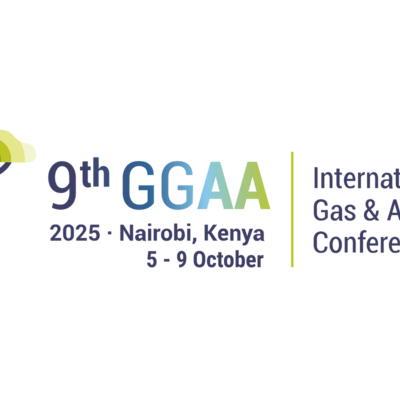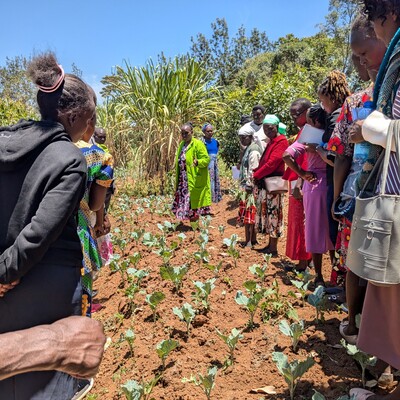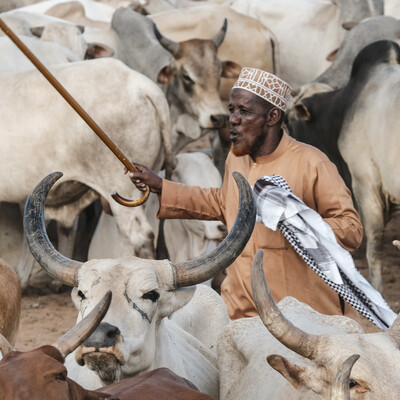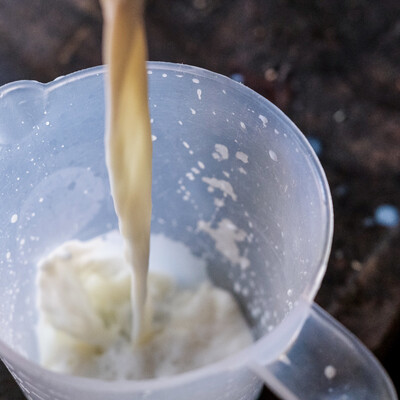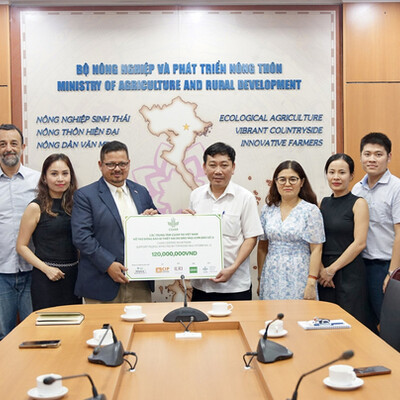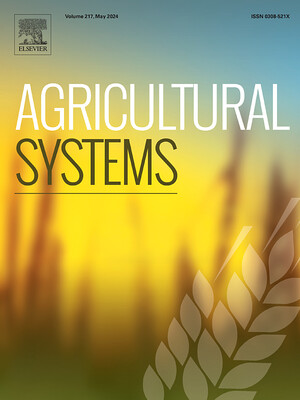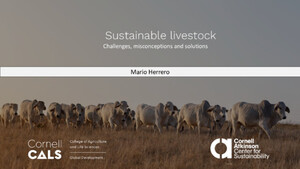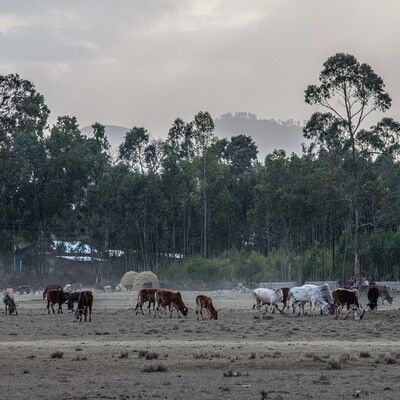
Goats and Trees: 10 weeks as a KMIS intern at ILRI, Addis Ababa
On 26 January 2012, Kara Brown travelled to Addis Ababa, Ethiopia to begin a 10-week internship with the International Livestock Research Institute (ILRI) Knowledge Management & Information Services (KMIS). Here she reflects on her days in Addis Ababa – the ideas were initially shared with ILRI colleagues on 30 March 2012.
It was my very first visit to Ethiopia, and my first time in Africa. The contract I signed on my first day described my role within KMIS as ‘using social interactive media approaches, tools and strategies to help ILRI document and communicate its research and development activities‘. In other words, my time was spent assisting KMIS Head Peter Ballantyne and his dynamic team with social media and communications activities.
The final step of my journey was to create and present a summary of my overall experience for the KMIS team. Below is the outcome of that reflective process.
As I was looking through photographs for my final presentation, I noticed a high prevalence of two things — goats and trees. I think the two are quite fitting. The goat symbolises wisdom and energy – which is how I would also describe the talented, energetic and enthusiastic KMIS team. And the tree is representative of ILRI as a whole. Trees are symbolic of knowledge and nature – two things that Ethiopia boasts in abundance and ILRI works hard to cultivate and protect.
Three words summarise the lessons I will be taking away from this internship: social, sharing and caring.
Social
Being social can mean different things to different people, and can take on different meanings at different times. I view social media as one part of a bigger picture, and that is how it is being used within ILRI too. Social media do not need to replace traditional methods of communication, but are complimentary tools… and certainly worth using.
Social Documentation
On Slide 8 of my presentation, I’ve listed a variety of online communication tools and platforms. The tools highlighted in red are those I had prior experience of using, and the ones in green I experimented with, read about and tested for the first time at ILRI. The theme “animal feed” runs through all documentation tasks I was assigned. I provided assistance to various project teams by documenting workshops, field trips and project progress via various different social media platforms:
- USAID ‘Feed the Future’ project: Sustainable Intensification in the Ethiopian highlands
- Ethiopia Livestock Feed (ELF) project wiki
- One, two, three ELF project blog posts
- ELF project photographs from the field
- East Africa Dairy Development (EADD) II project wiki
- MilkIT project wiki
Social Media Metrics
One of my main tasks at ILRI Addis was to work with Web Communications Assistant Liya Dejene on social media metrics. We turned to Google Analytics and a small selection of other tools to find out who’s following ILRI online? How many hits does ILRI social media get? Where do our visitors come from? What comments do they post? What are our audience most interested in? And, what can we learn from all this data?
Many people ask why looking at social media statistics is important. I have three golden rules when it comes to getting the most out of social media for your organisation:
- Identify your audience and goals
- Don’t be afraid to make mistakes
- Analyze the impact of your efforts
It’s that third step that underlines the significance of social media M&E. Learn from your efforts; improve & build on your social media strategy.
Sharing
The importance of sharing is something I’ve learned to appreciate more since joining ILRI. Ethiopian culture itself embraces sharing. From sharing meals, to sharing seats on minibuses, to sharing gossip and stories; sharing is as the heart of everything people do in this country.
I’ve come to see knowledge sharing online and the use of social media as an extension of African culture & traditions, rather than something novel or ground-breaking. Ethiopians have been sharing knowledge for centuries, through their own forms of social network. For example, coffee ceremonies – where the local community all gather together in one place, and storytelling – where pearls of wisdom are passed down from generation to generation. Moving this conversation online has its advantages, but it is also important to keep traditional channels of communication open. Why? Because making a difference requires teamwork: a web of researchers, scientists, development workers, donors, comms specialists, government actors and local communities. When it comes to influencing policy makers, to learning more, and thinking up new solutions to old problems; knowledge sharing, be it face-to-face or online, is key. The web and global social network is powerful, and ILRI has taught me new ways to take advantage of this free, very rich resource… whilst affirming the important part it can, and should continue to play in international development.
Social Media Guide
The most recent project I’ve been working on here in Addis is a ‘social media guide for the promoting African knowledge on climate change’ with Knowledge Sharing and Communications Specialist Ewen Le Borgne and Web Communications Officer Tsehay Gashaw. We prepared this guide for the knowledge-sharing network AfricaAdapt and hope it can be used within ILRI and the wider CGIAR network in the future too. It is very much a work in progress – we’d like to see this resource evolve and progress over time. Comments, suggestions and questions are therefore welcome!
Caring
My final buzzword is “caring”. From day one, I felt very welcome in the ILRI office and was impressed by the attention to detail and pride that KMIS takes in all activities. It has struck me during my time here that my colleagues truly care about the quality of their work, about each other, and about the people whose lives ILRI is working to support and transform.
Instead of the three words social, sharing and caring – I’d like to propose social, sharing and daring as my three ‘take home messages’ for the team I’ve been working with in Addis Ababa.
- Continue to be social. Keep social at the heart of everything you do. Social media are evolving at such a fast pace, and I think it’s such a great movement to be part of because the possibilities for making a difference are endless, and exciting. Be sociable too. Remember to step away from your computer screen and spend quality face-to-face time with people on occasion!
- Continue to share. Think of social networking as an expansion of a conversation that has been going on for centuries. Once upon a time, knowledge was power. Today, it’s more apt to say: “sharing knowledge is power”.
- Dare to stand out from the crowd. As a social media user, it’s important to dare to be different. There is no rulebook, no magic recipe, and new tools and platforms are forever emerging online. Have fun and experiment with all that is out there.
A big feature of my time spent interning in Ethiopia was the consistently positive feedback I heard about KMIS. The work being done at ILRI on communications in general, and social media in particular, is without a doubt changing the research and development process – it’s increasing transparency and accessibility. I look forward to following ILRI’s work in the future, and encourage both KMIS and other staff to continue to push the boundaries of knowledge sharing and social communication.





